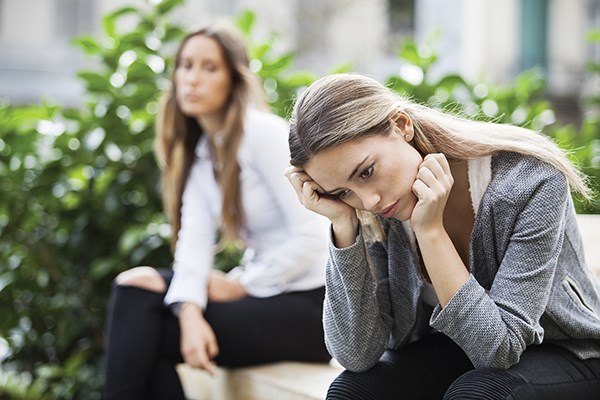In the past few years I’ve watched friends go through some pretty extraordinary and life-altering events. Tough stuff like losing spouses or parents; fighting cancer, children with cancer, and health issues that turn the day-to-day inside out; separation and divorce; or losing financial footing.Â
And every time one of my friends goes through something devastating I’ve noticed something equally beautiful that comes from their sharing of the experience. Friends and family rally. They pull together and offer support – from crowd-funding campaigns to a shoulder to cry on, a cup of tea, a meal.Â
I’ve been reflecting on this a lot lately as I go through my own rough patch. Because it’s different when you aren’t well and you aren’t able to talk about it. It’s fair to say there are those of us who are private or prefer to think that we don’t need anyone’s help, but in reality it’s hard to keep things under wraps when you lose a job, your home or a loved one – especially in a small town. These things become commonly known quite quickly and it’s societally acceptable to openly struggle, grieve and even expect help.Â
But when you have depression it can be quite different.Â
Having experienced depression at several points throughout my life, I can say it’s a particularly tricky beast. Yes, there are resources and support out there – but depression is sneaky. It’s calculating. It doesn’t want you to involve others. It doesn’t want you to tell your friends or your family or your boss. It loves that you think you can get the upper hand and constantly struggle to do so. It revels in the shame you might feel and the fact that you keep it a secret.Â
You wonder, maybe you’re just sad, angry or tired? Add to that a foggy brain; a lack of interest in the things that used to get you out of bed in the morning; and changes in appetite, sleep and your ability to work, and you’re suddenly dealing with an army of symptoms that render you unable to seek the support that would ultimately help shift everything.Â
Depression has been a monster in my closet. I came to know it most intimately in my 20s after a marriage and a career both ended. And since then it’s always loomed, a shadowy figure lurking in the wings waiting for a moment of weakness when it could slip back into my life uninvited.
If I can say only one thing about depression it’s this: Talk about it. Tell someone. Tell a bunch of people. Yank it out of the shadows and shine a light on it.Â
The hell that is depression is living in that space in between. That place where all you do is question your emotions or tell yourself you just need to pull yourself together and be stronger.
I’ve only been able to begin to recover from depression after I finally said it out loud to another person, whether it was a trusted friend, family member or professional.Â
That moment consistently marks the beginning of things looking up.
More recently a counsellor suggested I consider the “good” things depression brings to my life. I know, I too thought perhaps she was crazy, but as we continued to chat it became evident that as bizarre as it seems, depression might actually have something to offer.
Depression makes me aware that I need to feel and express more emotion; that I need to rest, slow down, make fewer decisions and take on less responsibility. Because that’s what it does. It makes all of those things happen, whether I like it or not.Â
It’s hard, but I’m working on welcoming the feelings that come with depression. This, in turn, helps me to identify it as it approaches, so I may be able to talk about it sooner. So that it may leave sooner.Â
And by speaking about it you are giving the people around you the chance to step up and lend a hand, or an ear, or a shoulder. Not everyone will respond the way you need or hope, but there are those who will – and those who will surprise you in ways you could never have imagined.Â
This is the silver lining – the beauty of people rising to the occasion. And there’s a gift in allowing them to do it.Â
It all starts with talking about it.Â



